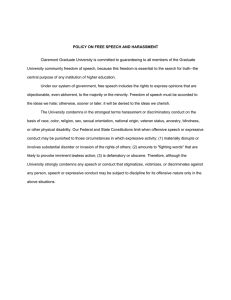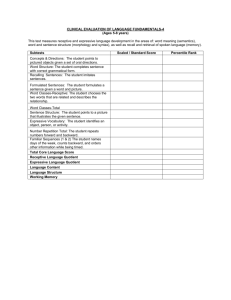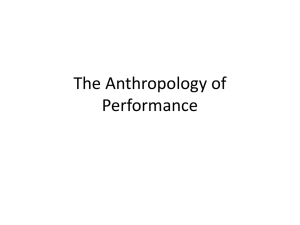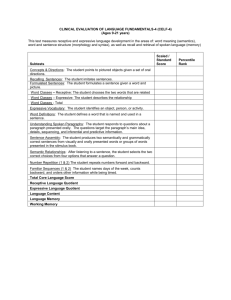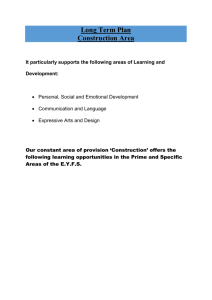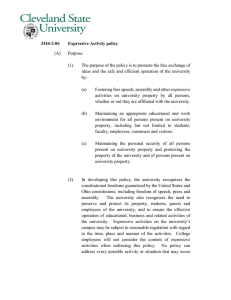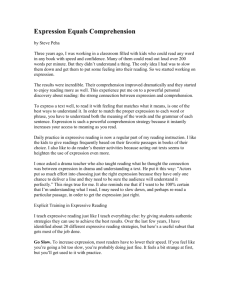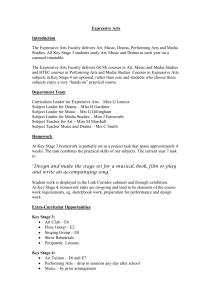Handout - Lancaster University
advertisement
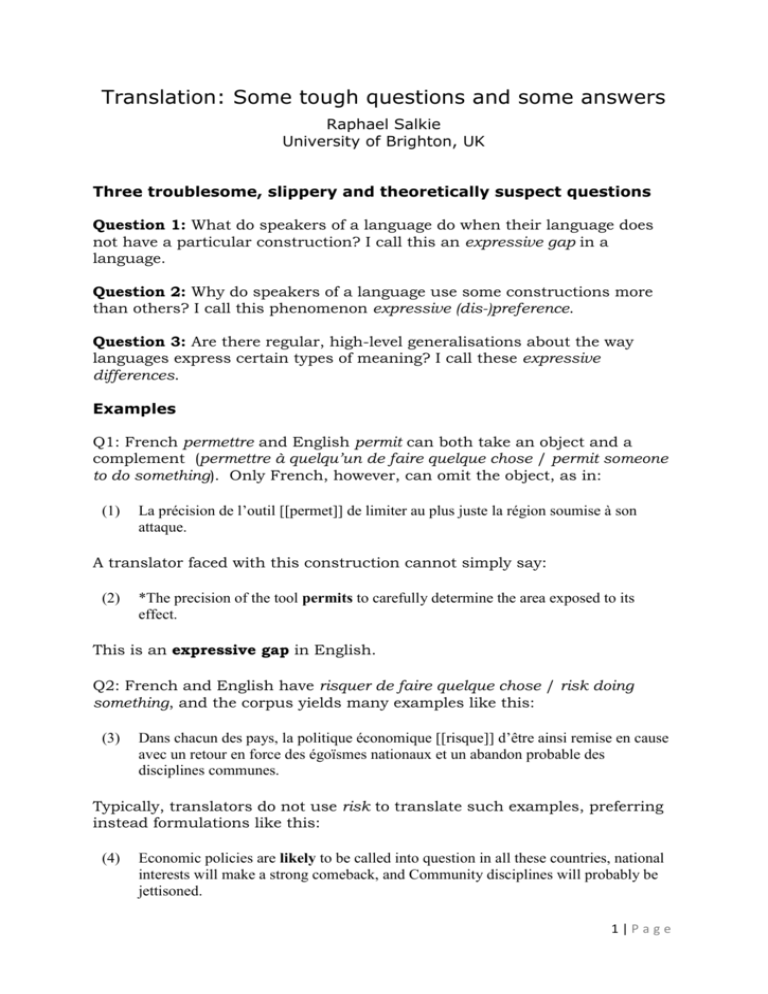
Translation: Some tough questions and some answers Raphael Salkie University of Brighton, UK Three troublesome, slippery and theoretically suspect questions Question 1: What do speakers of a language do when their language does not have a particular construction? I call this an expressive gap in a language. Question 2: Why do speakers of a language use some constructions more than others? I call this phenomenon expressive (dis-)preference. Question 3: Are there regular, high-level generalisations about the way languages express certain types of meaning? I call these expressive differences. Examples Q1: French permettre and English permit can both take an object and a complement (permettre à quelqu’un de faire quelque chose / permit someone to do something). Only French, however, can omit the object, as in: (1) La précision de l’outil [[permet]] de limiter au plus juste la région soumise à son attaque. A translator faced with this construction cannot simply say: (2) *The precision of the tool permits to carefully determine the area exposed to its effect. This is an expressive gap in English. Q2: French and English have risquer de faire quelque chose / risk doing something, and the corpus yields many examples like this: (3) Dans chacun des pays, la politique économique [[risque]] d’être ainsi remise en cause avec un retour en force des égoïsmes nationaux et un abandon probable des disciplines communes. Typically, translators do not use risk to translate such examples, preferring instead formulations like this: (4) Economic policies are likely to be called into question in all these countries, national interests will make a strong comeback, and Community disciplines will probably be jettisoned. 1|Page This is an expressive preference in French. Q3: The English original says ‘He felt a sudden lurch of memory’, and the French translation says ‘Un brusque déclic se fit soudain dans sa mémoire’. The French text says ‘L’eau lui arrivait aux genoux’ and the English translator writes ‘He was knee-deep in water’. Is it a coincidence that the English starts with the person ‘he’ in each case, while the French sentence has an event noun used metaphorically (déclic) or a concrete entity (l’eau) acting on the person? Is there, as has sometimes been hypothesised, a general tendency in English to foreground animate nouns in subject position – whereas French would more readily favour inanimate subjects? This would be an expressive difference between English and French. 2|Page
